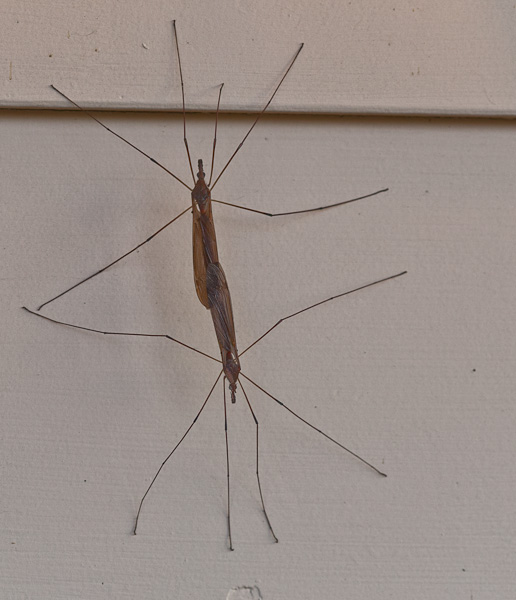Hype and Anti-Hype
I’ve been lost in a fog of hype for months now—what with promoting my Nested Scrolls autobio this winter, putting out Flurb #13 and converting it into an ebook, and recently spending all my time getting my Transreal Books line going.
Not to mention tweeting and blogging. And layering on link tags all over the place.

[Terry Bisson]
I even put out some hype for someone other than myself this week, a book review of Terry Bisson’s great alternate history memoir, Any Day Now. The review is in this interesting new online literary journal, the Los Angeles Review of Books—meant to be a kind of left-coast mirror of the august New York Review of Books.
On the subject of hype, I’ve heard media figures say that they get into trouble when they start believing their own hype. I mean I’ve heard rappers say that, anyway. What is the nature of the danger, exactly?
Maybe, if I believe the hype, I don’t feel a need to even try to write, as I think I’m already so great. Maybe, if I believe my hype, then I’m not willing to put in the work it takes to write because I’m too “important” for the thousand-miles-on-foot slog of writing a novel.

Or maybe, if I believe the hype, I do still want to write, but I become blocked—because nothing I actually do write lives up to the hype? That is, maybe if I believe the hype, when I try and get to work, I freak out over the very real disparity between the contingent and mortal quality of what I actually do write vis-a-vis the much higher quality that my hype ascribes to my oeuvre.
Or, yet again, maybe I am still able to write but, believing the hype, I get lazy and begin neglecting the necessary but painful work of outlining, revision, scientific theorizing, and pre-visualization—this happens to older writers sometimes.
Or perhaps, if I believe my hype, I lose my sense of humor and become pompous and self-referential. “Fatuous,” to use an apt word that I’ve heard Bruce Sterling use (when arguing with me about some revisions to one of our many collaborative short stories). Fatuosity is another danger for established writers.

[Two mayflies in conjugation]
I’m hoping soon to get away from the hype and back to my actual work. Giving the finger to consensus reality. Turning my back on received ideas—even if they come from me.
As I’ve already kvetched in these posts, one thing that’s holding me back from writing at this point is that I don’t feel like working on my new novel, The Big Aha , until I find a path for publishing my last one, Turing & Burroughs. If I don’t get something set up by the end of June, I’ll probably publish Turing & Burroughs via my own line of Transreal Books, just to get it off my back. It’ll be a bit of a blow to my self-esteem to join the ranks of the self-published novelists. But that seems to be the way the wind’s blowing. I heard the other day that the august house of Houghton-Mifflin is bankrupt. Leaving more and more writers scrabbling in the gutter with the literary lepers…

Bringing us to the theme of anti-hype. Somewhere (although I can’t find the exact location) Thomas Pynchon writes that a certain kind of seeker (mystic, writer, or artist) needs an “unwiltable hard-on” of ambition. (Let’s suppose this can apply to female seekers as well, the “hard-on” being, after all, metaphorical—a psychic dildo, if you will.)
In a similar vein, there’s a saying attributed to Rabbi Hillel, “If I am not for myself, who will be?” (Hillel complicates matters by adding on, “If I am only for myself, what am I? And if not now, when?”)
To some extent, I like to think that, if nobody hates what I’m doing, then I’m not going far enough. But if everybody hates what I’m doing—gosh, maybe I’m on a wrong path. But so far, there’s always been a few loyal friends or fans who approve of what I’m doing. So I continue on, largely unchanged.
And there’s always the bitter SubGenius motto: “F*ck them if they can’t take a joke.”

What about the strategy of trying to bend your work to be a better fit for the market? That tends not to work. You get into playing catch-up ball, to use *ack* a sports metaphor, and your style suffers. Or your style stays the same, but nobody believes your claim that you’ve written a steampunk or urban fantasy or whatever kind of book.
I once heard someone ask William Burroughs why he didn’t “just” write a bestseller to make some money. The old master said that something like the following:
“It’s not possible. People may think they can sit down and write a bestseller, but you can’t do it. A bestseller is written up to the level of a man’s ability. You can’t write down to the reading public.”

[Rudy at the Met]
Whatever else it is, writing is pleasant, addictive, and a path to self-knowledge. It’s just nice to have an excuse for doing it. I always seem to find some kind of project to work on, even if it’s not a novel. So what am I writing these days? Well, I’m polishing up my Journals, 1990-2012, getting them into a format that I can publish via, ta-da, Transreal Books. Ebook and paperback, probably.
So for now I’m puttering around, getting those the half million or so words wrestled into a reasonable shape. It’s passing the time in any case.









June 4th, 2012 at 12:56 pm
Hyperbole, by definition, reaches beyond truth. If you believe the hyperbole about yourself, you believe you are better than you really are.
Self-promotion doesn’t have to reach beyond truth. If you don’t believe in your own self-promotion, your audience won’t believe it either.
June 4th, 2012 at 5:35 pm
Not to worry, when we merge with the infinite infinite we’ll All be reading your books.
I’ve been reading little bits of scrolls at a time and near the end — really enjoying. I’m only with it on the weekends and even then not much.
Maybe its time for a rewrite of Infinity and the Mind given all the speculation about an infinite multiverse.
June 5th, 2012 at 4:26 pm
So very well said.
Even in my realm, I am repeatedly asked why I don’t “just” write for the pay-by-the-hits websites to make some extra pocket change. Why I don’t “just” cover more accessible material. Why I can’t “just” specialize in one area, one niche, one beat, in order to effectively brand myself as a journalist.
As you say, it tends not to work. In fact, it cripples. I came up with this answer: Journalist as brand = journalist as bland.